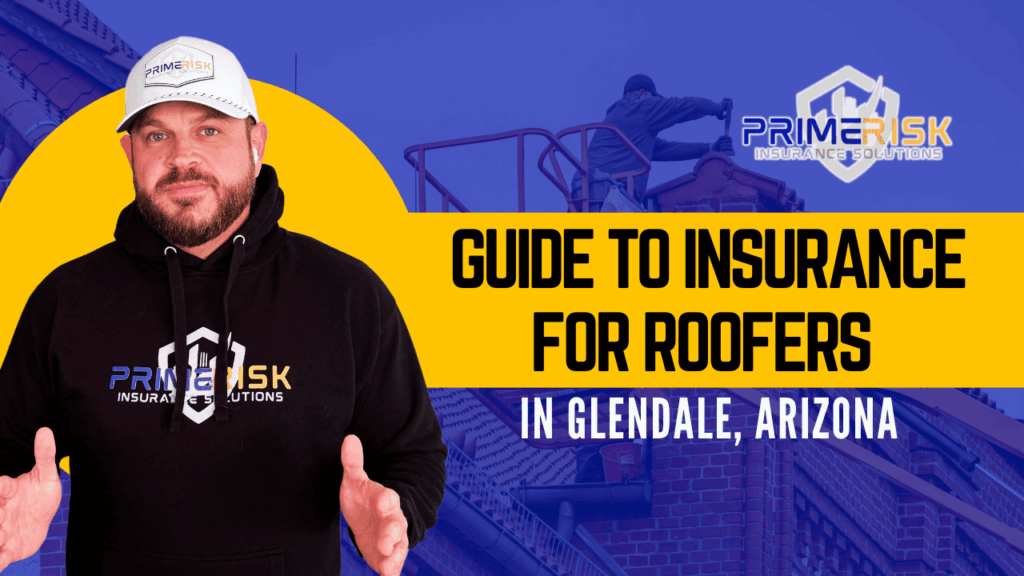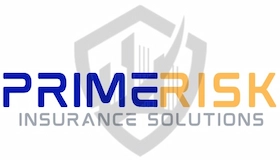
Are you a roofing contractor in Glendale wondering how to safeguard your business against the unique risks of Arizona’s extreme climate?
Have you found yourself unsure about which insurance policies are legally required—and which are just smart business moves to keep you from losing everything after a single claim?
In this complete guide, you’ll learn exactly how to protect your roofing business in Glendale, Arizona, from both legal liabilities and financial disaster. We’ll break down Arizona’s contractor insurance requirements, the specific policies you need, the common gaps that catch contractors off guard, and strategies to manage your insurance costs without compromising protection.
Here’s what we’ll cover:
- Understanding Arizona’s Contractor Insurance Laws: What the Arizona Registrar of Contractors (ROC) requires—and what they don’t, but you still need.
- Essential Types of Insurance for Roofers: General liability, workers’ comp, commercial auto, professional liability, cyber insurance, and more.
- Glendale-Specific Risks and Regulations: How the desert climate and local permitting rules affect your insurance needs.
- Common Coverage Gaps to Avoid: Why subcontractor exclusions, open roof clauses, and professional liability limits can leave you exposed.
- Insurance Cost Management: How much typical policies cost, and how to lower premiums while staying fully protected.
- Actionable Next Steps: A checklist and recommendations to help you build a sustainable insurance strategy.
Arizona’s Regulatory Framework for Roofing Contractors
Why Understanding the ROC is Crucial
In Arizona, all roofing contractors must comply with the rules set by the Arizona Registrar of Contractors (ROC). The ROC ensures contractors meet licensing, bonding, and insurance standards. This isn’t just about checking boxes—it’s about showing clients and the public that you run a legitimate, responsible business.
Key ROC Requirements:
- Licensing Exams: To prove technical competence.
- Bonding: To protect clients if you don’t complete work as agreed.
- Workers’ Compensation Insurance: Required if you have employees.
What Insurance Is Legally Required—and What Isn’t (But Should Be)
Arizona law mandates workers’ compensation insurance for any contractor with employees. However, general liability insurance isn’t legally required for licensing—but good luck winning contracts without it. Most clients demand at least $1 million per occurrence and $2 million aggregate coverage.
Contractor Bonds: A Financial Safeguard for Clients
Contractor bonds protect customers if you fail to deliver on your contract. In Arizona:
- Residential roofing bonds range from $4,250 to $7,500 depending on your revenue.
- Commercial roofing bonds can climb as high as $50,000 if you’re handling $10 million or more in projects annually.
Bonds are separate from insurance but just as critical for operating legally.
The Essential Insurance Policies for Roofing Contractors
1. General Liability Insurance: Your First Line of Defense
This covers third-party bodily injury, property damage, and completed operations claims. Given Glendale’s harsh climate, material failures or installation defects can quickly turn into lawsuits—sometimes years after the job is done.
Typical Coverage:
- $1 million per occurrence
- $2 million aggregate
2. Workers’ Compensation Insurance: Protecting Your Team and Business
Roofing is dangerous, period. Arizona law requires you to carry workers’ comp if you employ even one person. Claims for injuries like falls or heat exhaustion can otherwise bankrupt your business.
Typical Rates:
$9.90 to $15.25 per $100 of payroll—one of the highest rates in any industry.
3. Commercial Auto Insurance: Protecting Your Mobile Operations
If your crew drives company trucks or vans, commercial auto insurance protects you against:
- Vehicle accidents
- Damage to tools and materials in transit (via inland marine coverage or endorsements)
Typical Cost:
$1,200 to $4,000 per vehicle annually
4. Professional Liability Insurance: Covering Design and Workmanship Claims
Clients can sue for professional mistakes, like:
- Specifying the wrong materials for Glendale’s climate
- Installation errors that lead to property damage later
Without this, your personal assets could be on the line.
5. Cyber Insurance: Protection in the Digital Age
If you use software for quotes, payments, or customer data, cyber insurance protects against:
- Data breaches
- Ransomware attacks
- Business interruption from tech failures
Glendale’s Unique Climate and Insurance Considerations
Why Roofing in Glendale Is Riskier
The Sonoran Desert presents roofing challenges you won’t find elsewhere:
- Extreme heat: Roof surfaces can reach 160°F, affecting both worker safety and material integrity.
- UV degradation: Accelerated wear on roofing materials can lead to claims years after installation.
- Monsoon storms: Sudden weather shifts can damage partially completed projects.
- Dust and debris: Can interfere with material adhesion and drainage, creating potential warranty claims.
How This Impacts Insurance
- Higher workers’ comp costs due to heat-related injuries.
- More completed operations claims as materials degrade faster.
- Increased property damage claims from monsoon-related project delays.
Don’t Forget Glendale’s Permit Requirements
Glendale requires contractors to:
- Hold a City of Glendale business license.
- Obtain building permits for most roofing jobs.
- Submit electronic plans and specs before starting work.
Ignoring these can result in fines—and potentially void insurance coverage.
Common Insurance Gaps Roofers Need to Avoid
Subcontractor Exclusions
Many policies exclude subcontractor work or severely limit coverage. If your sub makes a mistake and their insurance fails, you could be stuck paying out of pocket.
Open Roof Exclusions
Some policies won’t cover water damage if a roof is left open during rain—a serious issue during monsoon season.
New Construction vs. Re-Roofing
If your policy excludes new construction but you take on a new build, you might find out too late that you have no coverage.
Previous Acts and Retroactive Date Issues
Claims-made policies often don’t cover work done before the policy started unless you negotiate the right retroactive date.
How Much Does Insurance Cost for Glendale Roofers?
| Insurance Type | Typical Annual Cost |
|---|---|
| General Liability | $2,000 – $8,000 |
| Workers’ Comp | $49,500 – $76,250 (for $500,000 payroll) |
| Commercial Auto | $1,200 – $4,000 per vehicle |
| Professional Liability | $1,000 – $5,000 |
| Cyber Insurance | $500 – $2,000 |
How to Reduce Insurance Costs Without Sacrificing Coverage
- Implement Safety Programs: Fewer accidents mean lower premiums.
- Bundle Policies: Work with one insurer for discounts.
- Choose Higher Deductibles: Save on premiums, but ensure you can afford the out-of-pocket costs.
- Work with a Specialist Broker: Roofing is unique—your insurance agent should know that.
Actionable Next Steps: Your Insurance Checklist
Must-Have Coverage:
- Workers’ Compensation
- General Liability (with completed operations coverage)
- Commercial Auto
- Professional Liability
- Cyber Liability
- Contractor Bonds
Ongoing Management:
- Review your policies annually
- Document safety and quality control processes
- Report all incidents promptly to your insurer
Building a Sustainable Insurance Strategy for Your Roofing Business
At the end of the day, protecting your roofing business in Glendale isn’t just about meeting the minimum legal requirements. It’s about creating a safety net that lets you grow confidently—without worrying that one claim could shut you down.
Now that you understand how roofing insurance works in Arizona’s harsh desert climate, your next step is to consult with a qualified insurance broker who specializes in contractor coverage. Make sure they understand the unique risks you face in Glendale, and review your policies regularly to keep up with changing conditions.
If you’re ready to secure the right coverage, protect your team, and confidently grow your roofing business, start building your comprehensive insurance plan today.

